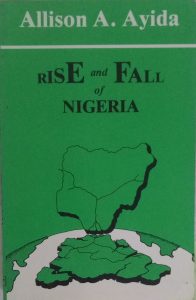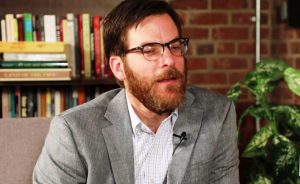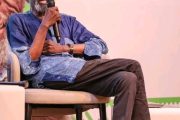
The author
By Adagbo Onoja
With Nigeria swimming in high degree of uncertainty, grave security threats, voluminous stories of unspeakable looting, elite fragmentation of disturbing proportion, rising poverty and misery and incoherence in leadership and governance across all levels, is it not about time the question is posed as to how the country’s situation today might be scientifically analysed and understood?
Ordinarily, it is the Nigerian State that should be leading the nation in thinking through the crisis, proposing and arguing its own perspective on the crisis and trying to synthesise contending views into a binding narrative for everyone at each turn. That is what Thomas Hobbes meant when he thought of ‘the state of nature’ for any society that doesn’t have state or the Leviathan. The war of all against all or the anarchy he talked about has undergone recent interpretation to refer not to uncontrollable physical scuffles among human beings in such a society but a crisis of discursive incongruence which would be the condition of possibility for the anarchy.
Unfortunately, governance in Nigeria is rarely about such direction in managing power or about qualitative BUT quantitative governance – number of ministers, the number of ministries, the amount budgeted rather than the principles driving each budget, etc. Generally, the protocols rate higher than the substance. At every turn, the Nigerian people, guided by the share holders and stakeholders will headhunt an expired presidential material, put him or her in power with great enthusiasm but only to start grumbling the year after.
Hence the question as to what might be happening to Nigeria as it is once again at a T-Junction. It is never far from a T-Junction though even as the elite always manage to turn back from each one: 1993; 1998; 2010; 2011 and 2015. That question is whether it is nemesis or dialectical process or assemblage that explains what is happening vis-à-vis how to predict her collective future.
There is a sense in which nemesis and dialectical reasoning connects in the analysis of current crisis in Nigeria in spite of their different meta-theoretical origin. While nemesis is theological in that sense, dialectics is radical Hegelianism which Marx/Marxism appropriated.

Check out if nemesis is confirmed in the text!

Flashback to the years of ideas and Nigeria as a debate!
Nemesis or those who subscribe to it as a framework for analysing today’s ordeal would say the country is paying for its ‘sins’, travesties that characterise sociality in Nigeria over the years, especially those perpetrated by those who run the state/government. Everything from the list that opened this piece to rising cases of rape, cultism, falling oil prices, privations of leading characters in government and what have you would fit into their evidence of nemesis unfolding. We are all under punishment, obviously for opting in our everyday living for the wide road that leads to damnation. And our sufferings today are piecemeal signals ahead for the game changing divine intervention on its way. The good thing about the nemesis lens of looking at today’s crisis is that everyone will be punished according to his or her guilt just as we might also ALL suffer collective reprisal. Intervention stands to be corrected by authorities in Theology. Interestingly, that is also what dialecticians would say.
Contradictions, especially those with material foundation, have accumulated over the years in Nigeria, producing their own refutation or anti-thesis. Anti-thesis is like saying that for every action, there is an equal and opposite reaction. So, each collection of contradictions have been attracting equal and opposite reactions. There will come a time when the equal and opposite reactions will collate into a major outcome. Depending on how lucky or which social forces are most organised or powerful in whatever sense of the word as to be in control, the outcome could be catastrophe for the whole nation or emancipation of it.
This is the sense in which the theological/nemesis school and the dialecticians can be put in one explanatory pigeon hole as opposed to the assemblage theorists. Assemblage theory is a relatively recent framework from critical or interpretivist social theory and which has been creatively applied to analyse different social phenomenon. With Prof Jason Dittmer of the University College London who takes the credit for the most sustained scholarly deployment of it in materialist geopolitics, the argument is fairly straightforward. What is happening to Nigeria would be said to be a case of the meeting and mixing of multi and mini-scale activities, in no programmed or ordered manner but sure to produce something overwhelming.
Like Marxism or the dialecticians, assemblage theory is materialist but, unlike Marxism, it is not deterministic. It is not about thesis and anti-thesis that were not in contact but could produce a different outcome. In that sense, assemblage explanation is different. Instead of thesis and anti-thesis, there is actual meeting and mixing of people, materials, technology and places, bottom up and producing social reality. The key difference is that assemblage paradigm does not subscribe to rationalist science. It is rather interpretivist.

UCL’s Prof Jason Dittmer, foremost assemblage theorist

Cropped cover of a joint work of his and colleague
The same way the theory has been used to explain globalisation is also the way it is applicable to Nigeria. That is, just as we see digital technology, air travel, pandemics and stuff meeting and mixing to produce globalisation, so also might we understand the assemblage of corruption, insecurity, elite fragmentation and poverty mixing and reproducing Nigeria.
Common to all three broad perspectives above, (idealism/theology; realism/dialectical materialism and interpretivist/assemblage analysis) is something coming out of the current situation in Nigeria. For theologians, it is nemesis. For dialecticians, it is a synthesis while it is just something overwhelming in the case of assemblage theorists. Whichever perspective one subscribes to, the message is that there aren’t much differences, the only difference being the dynamics of how each works to produce an outcome. In nemesis, it is Providence that will determine it. That is beyond science although metaphysics is intelligible. In dialectics, it is contradictions that unfold. The problem here is that Marxists have pre-coded or naturalised contradictions, that being a major point of disagreement between Marxists and post-Marxists who believe, instead that it is not contradictions that produce any outcomes but the successful politicization of a contradiction. The unbeatable example here is the case of gender. Women have laboured under the weight of patriarchy throughout history but gender never became an agenda until it was politicised into an antagonism. Same could be said about racism in the US which has ever been there but is just being politicised. Assemblage theory is with post-Marxism in this regard.
In the days when the Nigerian technocratic establishment was made up of the Ayidas, Asiodu, Shettima Mongunos, Edwin Ogbus, Simon Adebo, Jerome Udojis, Mbanefos and the Ibrahim Damcidas, these were the kind of debates that dominated the policy mill. Pick any of their (auto) biographies and that’s what one sees. In the days when the universities were very active spaces of debate, these were the issues in contention too as issues in those days. Even as late as 1985, the military was a debating space if we recall IBB’s recommendation of a Military-Industrial-Complex, (MIC) approach to development for Nigeria in a lecture he delivered then. How a pre-industrial economy could accomplish industrial transformation during the Cold War through a MIC strategy is what the General didn’t probably scrutinize but the beauty of debate is the value added towards the production of a contingently sustainable analysis and, by implication, practice.
In the absence of any such debates and debating spaces, every standpoint in Nigeria today is regarded as either enmity or confrontation or disrespect for elders or something like that. Something that was the tradition a few years back is now no longer possible? But, a country that cannot debate itself is, of course, a goner. Well, for now, go tell that to the mountains! The agenda now is looting and enjoying the proceeds of looting, among other things!
Mr. Onoja who teaches Political Science at Veritas University, Abuja is an Editorial Associate of Intervention




























